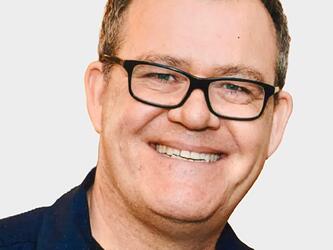The future of research: evolve or die
“If you do not change, you can become extinct”, said Spencer Johnson, author of Who Moved my Cheese?.
The irony isn’t lost on me that I’m using something written almost 20 years ago to support my case for modernisation. But Who Moved my Cheese?, the bite-sized business book about embracing change, is a text our industry needs to re-discover.
We are a clever, creative industry with a good heritage in helping business succeed. Experienced analysts in a world filled with ever-increasing data. But we are failing to interpret and act upon one key point: that we must evolve , or risk becoming obsolete.
The potential of IBM Watson or Google DeepMind to identify patterns in seemingly overwhelming amounts of data is hugely exciting. But unfortunately they’re coming from outside – rather than inside – our industry. And so far they are more likely to be gathering headlines for playing Go (not the Pokémon version), or helping Macy’s shoppers find a dress, than for revolutionising the world of research.
We cannot expect our clients to re-imagine our industry for us either. Many are simply pushing for faster and more cost-effective answers to the questions they know, to provide the answers they expect. Taking research in-house may save them money in the short-term, but it won’t push the boundaries going forwards.
The onus is therefore on us, the researchers. True, the financial climate dictates we first look to our current projects rather than future ones, but that climate doesn’t look like it’s changing any time soon. We have to demonstrate our value by showing that we can ask new questions, in new ways, with more relevant outcomes. That we can find credible and insightful patterns, enhanced by our deep knowledge of consumers, to drive better business decisions.
To do this we need to reach out and reinvent. The researchers who created our tried-and-tested techniques come from a different era and the current generation have continued to tread their path, not forge their own. We have got faster, more international and more mobile but we’re still drawing on the same methods, just with a few added extras. Research has still got its clipboard image when the rest of the world is on a screen. We need a re-brand.
How then do we start? We need heavy weight data analysts and data scientists if we are going to break new ground. To build technology platforms driven by our goals and our clients’ needs. Talent attraction and retention is difficult, particularly when you’re competing with the likes of Google for the best analysts, innovators and developers. The labs concept – pre-allocating a proportion of an agency’s resource and budget to innovation – has been explored by other industries but hasn’t been taken seriously in ours.
We should also use our learnings to make better use of existing technology. For example, by re-purposing Microsoft Kinect cameras we could increasingly understand shopper behaviour and track emotional responses on a live and continuous basis, in comparison to standard question-response interview methods.
What we can offer is an industry driven by human curiosity. Technology targeted at understanding how and why we make choices and decisions, not just navigating us to a shopping aisle. We have always known that data crunching, processing and formatting doesn’t give us the full picture. A pattern without a story is not enough.
For me, the future looks like a research news desk: researcher journalists deploying technologically astounding analytical tools, pulling out the key stories for brands even before they happen. Living the ‘always-on’ in a 24-hour news cycle rather than paying lip service to it. It’s an interesting concept.
If Google’s ambition is to be the first at organising the world’s information, ours should be becoming the best at understanding it. Not harking back, but moving forwards. Let’s not just find the cheese but create the next factory.
Roger Perowne is managing director at Morar

We hope you enjoyed this article.
Research Live is published by MRS.
The Market Research Society (MRS) exists to promote and protect the research sector, showcasing how research delivers impact for businesses and government.
Members of MRS enjoy many benefits including tailoured policy guidance, discounts on training and conferences, and access to member-only content.
For example, there's an archive of winning case studies from over a decade of MRS Awards.
Find out more about the benefits of joining MRS here.












1 Comment
david french
9 years ago
This is of course mostly more big data drivel. The key to research and innovation and great marketing is knowing your consumer, its markets, needs, identifying problems and designing products that offer great value propositions, solutions and value added experiences to solve problems or create opportunities that are emerging or may not exist yet....advances in technology, data and other Tools offer better means to observe and collect this information and data. It is not overwhelming...it is welcome. More data is not better data (statistics 101) what is rampant is marketing and research companies and writers scaring business with the false idea that the tsunami of information in the connected world is scary.,,oh my!... it is frightening...oh dear! and that product and marketing people at todays companies cannot handle it......yes you can. Your research objectives do not change the design of research methods,tools data inputs, volumes and metrics will. What is now open is a cornicopia of new ways to get information. It makes things easier and not something to fear. See.. its not just the mainstream media trying to scare everyone to death...its the 'big data' myth builders too at research companies.
Like Reply Report